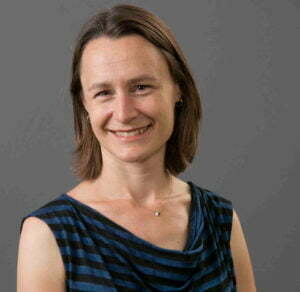Member Insight – Jennifer Ahern
 What sparked your decision to become an epidemiologist?
What sparked your decision to become an epidemiologist?
I gravitated towards science as an undergraduate because I enjoyed devising studies to test my ideas about how the natural world worked. However, I found that doing biological research did not connect as closely as I would have liked to the topics that were most important to me. I grew up in Baltimore, a city facing severe problems with racial segregation, poverty, violence, and substance use. I was motivated to better understand how Baltimore and many other US cities had developed into these sorts of situations, and how these conditions were impacting the people who lived there. During my senior year, to satisfy a statistics requirement for my biology major, my advisor Anne Fausto-Sterling recommended that I take something called “epidemiology”. I truly had no idea what it was. Sally Zierler taught the introductory epidemiology course at Brown at that time, and many of the example studies in the course related to social determinants of health. This was an eye-opening experience because it revealed that the scientific method that had drawn me to biology could be applied to the social issues that I was motivated to better understand. I quickly shifted from marine biology and oceanography to epidemiology and public health when planning for next steps after graduation. That is how I ended up on the path to epidemiology.
Do you have any pets?
Sierra is our sweet and crazy 15-year-old cat.
Why did you join SER? What keeps you coming back?
I joined SER because after attending a range of different epidemiology and public health meetings over several years, SER was the meeting that for me struck the best balance. It’s large enough to have many interesting talks and posters across a wide range of topics, but also small enough that over time you can get to know people. I also appreciate the methods focus, since I’m always motivated to learn about interesting new methods and how they can help us do better science.
What advice do you give students who want to become epidemiologists?
Do it! There are so many great things you can do with a degree in epidemiology at the masters and doctoral levels. I strongly recommend taking time to get work experience in between and during training in epidemiology. It is important to get practical applied experience, and to learn what day to day work life is in a field you are considering to figure out if it will fit with how you like to spend your time.
Outside of epidemiology what do you enjoy doing?
I love getting outside to walk, hike, bicycle, ski etc. I love spending time with my family – our daughter Soleil is 12 and she is the best.
What is something that not many people know about you?
I was a child actor in several opera performances in Baltimore because I sang in a chorus (Children’s Chorus of Maryland) that would audition the children for those roles.
